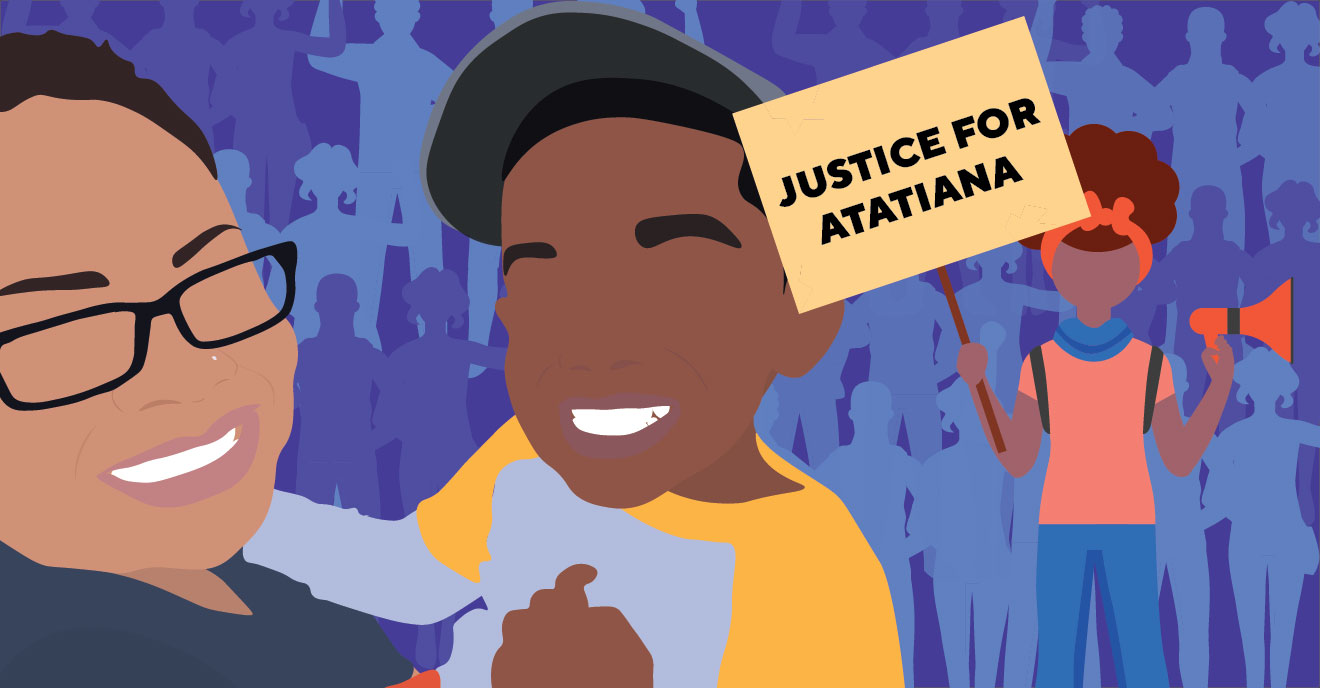This is the weekly column written by Blavity:Politics Senior Editor Kandist Mallett.
On October 12, tragedy struck the Black community once again when Atatiana Jefferson was killed by Fort Worth police officer Aaron Dean. Jefferson was just 28 years old, the same age as Sandra Bland, when she died. Atatiana Jefferson’s death brings up the constant reminder for Black people that it doesn’t matter who you are, what you’re wearing, or where you are, being Black is enough of a warrant to get you killed by the police.
Police body camera footage from that day shows Dean yelling, “Put your hands up! Show me your hands!” before opening fire and killing Jefferson, according to CNN.
The police were originally called to the residence by Jefferson’s neighbor, who requested a wellness check for her because her door had been left open. Even with such unforeseen circumstances, it’s not the neighbor’s fault that Jefferson is dead; the responsibility and blood are on the hands of the police officer who shot her.
On a larger level, blame must be placed on the institution of the police and our justice system, which has continued to allow police to shoot and kill Black people with impunity and unaccountability. Who are Black people supposed to call if they are in need of help or safety? This whole situation makes me think of something presidential candidate Sen. Kamala Harris said to Blavity on The Sit Down.
“Everyone wants public safety—what we don’t want is law enforcement misconduct,” Harris said. And this is correct; the need for safety is universal, but unfortunately, the people who are able to get safety is not.
Everyone wants public safety—what we don't want is law enforcement misconduct.
????: @BlavityPolitics
pic.twitter.com/P1dZLL1BFw— Kamala Harris (@KamalaHarris) October 12, 2019
But, often for Black people, the police's presence is a threat to our safety. While some believe we can reform the police, others think the police as an institution must be abolished. While we may not have the political power to abolish the police, we, as a community, can abolish our use of them.
Tracey Onyencho wrote an article for Blavity explaining the various ways that a community can protect itself without calling the police. In her piece, she wrote, “Historically speaking, police have actually brought in more violence because they were originally intended to be an enforcement of racist laws and practices. According to Mapping Police Violence, there were only 23 days in 2018 where people in the United States were not killed by police. Black people made up 25% of those killed, even though they make up only 13% of the U.S. population.”
With numbers like these, there is no surprise that Black people are afraid to call the police, even when they're in danger.
During the fourth presidential Democratic debate Tuesday, former HUD secretary Julian Castro was the only candidate to mention Jefferson’s name. Castro has made it a point to say the names of police brutality victims during the debates. But saying their name is not enough; we must take action and demand that there is never another person whose name we have to say.
